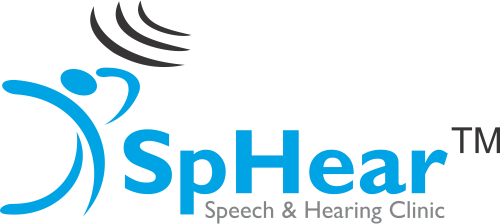- +91-11-4608 5246
- [email protected]
- Mon - Sat : 10:00 AM - 06:00 PM
CHIRP ABR
CHIRP ABR Testing
Hearing loss in infants and young children
Diagnosis of hearing loss in infants and young children requires an accurate estimation of ear and behavioural analysis based on frequency. These behavioural responses are measured through an automated test- Auditory Brainstem Response (ABR). Although the relationship between ABR and behaviour thresholds accuracy for prediction which depends on the degree of hearing loss.
About Chirp
Chirp is a latest electrophysiological procedure for detection of hearing loss in infants and young children. It is a most advance method that has shown sensitivity up to 100% enabling detecting of a normal hearing threshold at all frequencies.
Chirp Stimulus is designed to record auditory brainstem response (ABR) in the paediatric. It is responsible to recognize the timing of spectral stimulation to compensate temporal dispersion in human cochlea. It produces a same level of traditional responses (ABR, ASSR…) with up to 2x amplitude. Chirp enhances detection of sound wave responses and reduces time to automate detection.
What is Auditory Brainstem Response (ABR)?
A human being ear is made of three parts- the outer, the inner, and the middle ear. The Auditory Brainstem Response (ABR) is a tool which helps in determining child ability to hear. It is a neurological test to determine level of function in auditory brainstem in response to stimuli. The ABR test signifies how inner ear (called cochlea) and brain pathways work for hearing.
How ABR test conducted?
During the test, different sound waves are sent to the brain with a help of the computer, the waves are analysed based on how brain response. Three to four electrodes stickers are placed on your child head and ears those are connected with computers.
Different frequency sounds are generated using headphones and the electrodes evaluate how your child brain nerve response to these sounds by identifying certain neurological ‘markers’. The softest or loudest level of intensity at which these markers appear more or less corresponds to the child’s hearing level in that frequency range. An audiologist, then study readings through computer printouts of your child’s responses and interpret these markers to assess hearing problems.
Facts about ABR
- The ABR measure your child brain nervous system part that affects hearing.
- An ABR test is often ordered in young children those are not confirmed through a traditional hearing test or newborn babies who fails the hearing screening test.
- The test is safe and doesn’t hurt. It is conducted when your child is either sleeping or lying still with closed eyes.
- The test is conducted in a special SpHear Audiology department at the clinic.
- For children between 6 months to 7 years, the test is performed under the medication of mild (oral) sedation.
- If your child is over 7 years, usually the test is done when your child is awake or lies still.
- When your child is on sedation, special food and drinking rules are required to be followed as guided by your physician. If rules are not followed, the test will not be conduct on same day.
- When a test is done under sedation, your child is under primary care provision until discharged.
- The duration of the test can last up to 1 to 2 hours without sedation, and with sedation, it can take up to 4 hours including recovery time.
Conclusion
A valid predictor of hearing loss problem is an ABR test. The factor that accounts for the degree of affect in hearing loss is evaluated on the basis of the difference between ABR and behavioural threshold.
Few children such as infants or children with delayed development do not response to traditional hearing loss test. ABR is a painless test that evaluates hearing loss problems through sound.
It tells audiologist about the proper functioning of an individual ear or level of hearing loss. Therefore, Chirp ABR is a best electrophysiological procedure for assessing the problem of hearing loss in children those are expected to have a hearing average close to the normal hearing threshold.
Also read about: Hearing test for all ages
